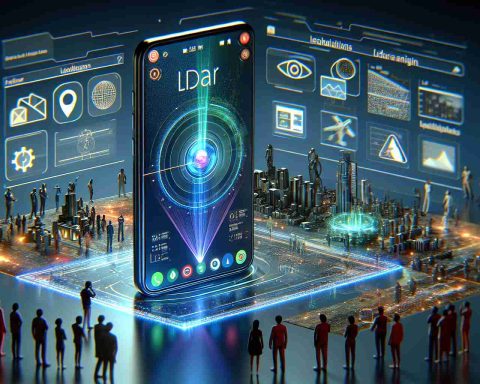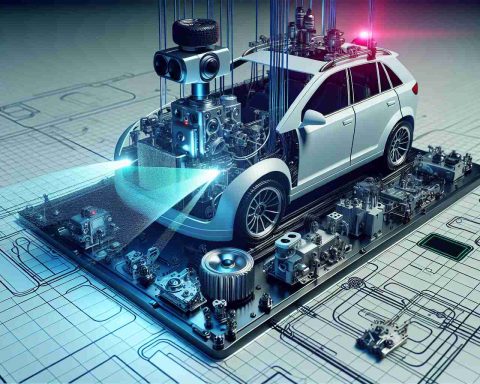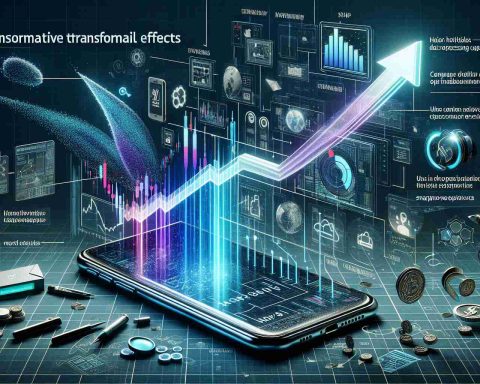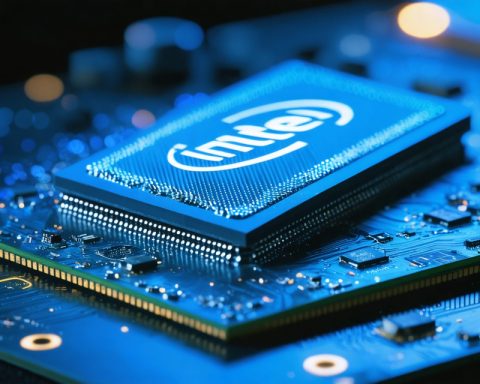- A technological revolution is transforming communication, work, and daily life with advancements like AI, virtual reality, and renewable energy.
- Leading tech companies are heavily investing in research and development to drive economic growth and industry transformation.
- Significant shifts are happening in healthcare and transportation, with personalized medicine and autonomous vehicles at the forefront.
- The evolving landscape demands new skill sets, emphasizing creativity, critical thinking, and emotional intelligence as automation increases.
- The human touch remains crucial, highlighting the importance of balancing technological innovation with human connection.
- Embracing change and cultivating essential skills are key to thriving in a constantly evolving technological landscape.
A quiet revolution is sweeping across the world, fueled by the relentless march of technological innovation. From the way we communicate to how we work and play, the changes are both profound and exhilarating.
Imagine a world where artificial intelligence predicts and solves problems before they arise, where virtual reality transports us to distant lands with just a flick of the wrist, and where renewable energy sources outpace their fossil fuel counterparts, illuminating a path toward a sustainable future. These advancements are not mere conjectures of a distant future; they are happening here and now, reshaping the very fabric of our daily lives.
Today’s leading tech companies pour vast resources into research and development, racing to harness the power of the latest breakthroughs. This fervor drives economic growth and transforms industries, creating new opportunities and challenges. Industries ranging from healthcare to transportation are already seeing seismic shifts: autonomous vehicles glide across test tracks with ease, and personalized medicine promises unprecedented levels of care based on individual genetic makeups.
But the pace of change is not without its ripple effects. As automation and artificial intelligence continue to evolve, the nature of work undergoes a metamorphosis, forcing us to rethink traditional career paths and skill sets. The emphasis moves toward creativity, critical thinking, and emotional intelligence—skills that machines cannot replicate.
Amidst this technological upheaval, the human touch remains indispensable. It is in our interactions, our shared experiences, and our ability to empathize that the true essence of humanity lies. As we integrate cutting-edge technology into our everyday lives, striking a balance between innovation and human connection becomes ever more critical.
The takeaway is clear: while technology paves the way for an exciting future, it is up to us to navigate this new landscape thoughtfully. By embracing change and fostering the skills needed for tomorrow, we equip ourselves and future generations to thrive in a world where the only constant is transformation. The future is a canvas, painted with the bold strokes of human ingenuity and the subtle shades of our shared humanity. Are you ready to be a part of this extraordinary journey?
The Future is Now: How Technological Advancements are Shaping Our World
Understanding the Technological Revolution
In an era governed by rapid technological advancements, the landscape of our daily lives and industries has been fundamentally transformed. Let’s delve deeper into the ways these shifts are influencing various sectors and what it means for our future.
Key Technological Innovations
1. Artificial Intelligence (AI):
– AI is not just a tool; it predicts and solves problems before they arise. It is being used in predictive analytics, enhancing decision-making across industries.
– According to a study by McKinsey, AI could potentially deliver an additional global economic output of around $13 trillion by 2030.
2. Virtual Reality (VR) and Augmented Reality (AR):
– VR offers immersive experiences, revolutionizing entertainment, education, and training.
– AR is increasingly used in retail, allowing customers to visualize products in real-world settings via applications.
3. Renewable Energy:
– Growth in renewable energy is unprecedented. The International Energy Agency (IEA) predicts renewables will surpass coal as the primary electricity generation source by 2025.
4. Autonomous Vehicles:
– Autonomous vehicles are set to reduce traffic accidents significantly. The World Health Organization indicates that these vehicles could reduce crashes by up to 90%.
Industry Transformations
– Healthcare:
– Personalized medicine is transforming care based on genetic information. AI aids in early detections and precise treatment plans.
– Telemedicine is another growing field, expanding healthcare access while saving time and costs.
– Transportation:
– Smart transportation systems optimize traffic flow and enhance safety through real-time data analytics.
The Changing Nature of Work
– Automation and AI are reshaping job roles, emphasizing creativity, critical thinking, and emotional intelligence—skills challenging for machines to emulate.
– The World Economic Forum suggests that by 2025, 50% of all employees will need reskilling.
Real-World Use Cases
– Smart Homes: AI and IoT devices manage home energy use, improving efficiency and reducing costs.
– Agriculture: Drones monitor crop health and automate farming processes, boosting productivity.
Market Forecast & Trends
– The tech industry is projected to grow exponentially, with AI leading the charge. IDC forecasts AI spending to reach $110 billion by 2024.
– Emerging markets such as blockchain, quantum computing, and 5G technology promise further disruptions.
Pros and Cons Overview
Pros:
– Increased efficiency and productivity
– Improved quality of life
– Enhanced healthcare and safety
Cons:
– Potential job displacement
– Data privacy concerns
– Ethical implications of AI
Actionable Recommendations
– Stay Informed: Keep abreast of technological trends through trusted sources.
– Develop Skills: Focus on enhancing skills that are less susceptible to automation.
– Embrace Change: Be open to adapting to new technologies in your personal and professional life.
Conclusion: The Journey Ahead
As technology continues to evolve, it is pivotal we navigate these changes thoughtfully, ensuring sustainable progress while maintaining our human connections. Embrace the future’s endless possibilities and prepare to be part of this extraordinary journey.
For more insights, visit McKinsey and International Energy Agency.



















